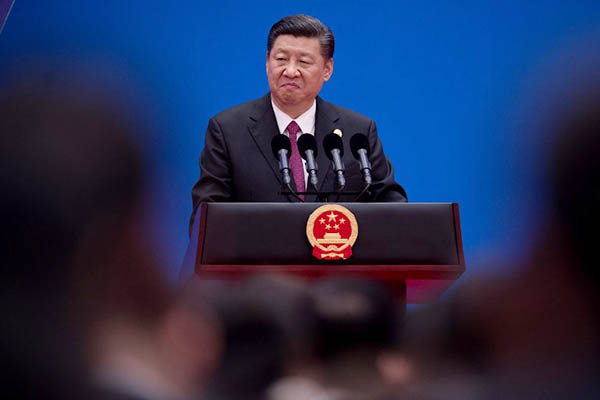
Nicolas Asfouri—AFP
Beijing reiterates opposition to any form of official exchange and military contact between U.S. and Taiwan
China on Monday said it had lodged an official protest with the United States following the passage of a defense spending bill that could lead to American warships visiting Taiwan.
Beijing has long objected to any military assistance from Washington to the self-governed island, which it considers a breakaway province. “China firmly opposes any forms of official exchange and military contact between the U.S. and Taiwan,” foreign ministry spokesman Lu Kang told reporters at a regular press briefing, adding that Beijing had made “stern representations” to Washington over the bill.
The National Defense Authorization Act for Fiscal Year 2018, passed by the U.S. House of Representatives on Friday, contains a section on Taiwan, which calls on Washington to provide the island’s military with increased military training and to encourage it to expand its defense spending. An amendment to the bill directs the Pentagon to submit a report to Congress on the feasibility of reestablishing port calls between the U.S. and Taiwanese navies.
The American navy stopped such visits to Taiwan in 1979, when Washington changed diplomatic recognition from Taipei to Beijing.
“We urge the U.S. side to fully recognize that the relevant articles in the act are severely harmful,” he said.
The U.S. Congress, he added, “should not turn back the will of history lest it should harm the general interests of China-U.S. relations.” The bill must pass the U.S. Senate and be signed by the president before becoming law.
It comes at a sensitive moment in U.S.-China relations, as the two sides are at odds over how to handle North Korea and President Donald Trump’s administration angered Beijing last month over its approval of $1.3 billion worth of arms sales to Taiwan.
Concerns that Taiwan would become a bargaining chip were raised soon after Trump’s election, when he suggested he might abandon the “One China” policy that underpins U.S.-China relations, unless he could strike better deals with Beijing. But once in office the president unequivocally endorsed the “One China” policy during a visit by Chinese leader Xi Jinping.
